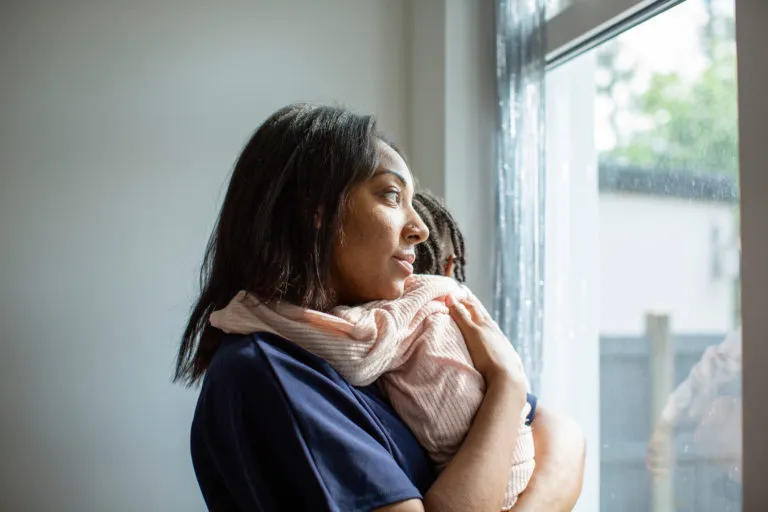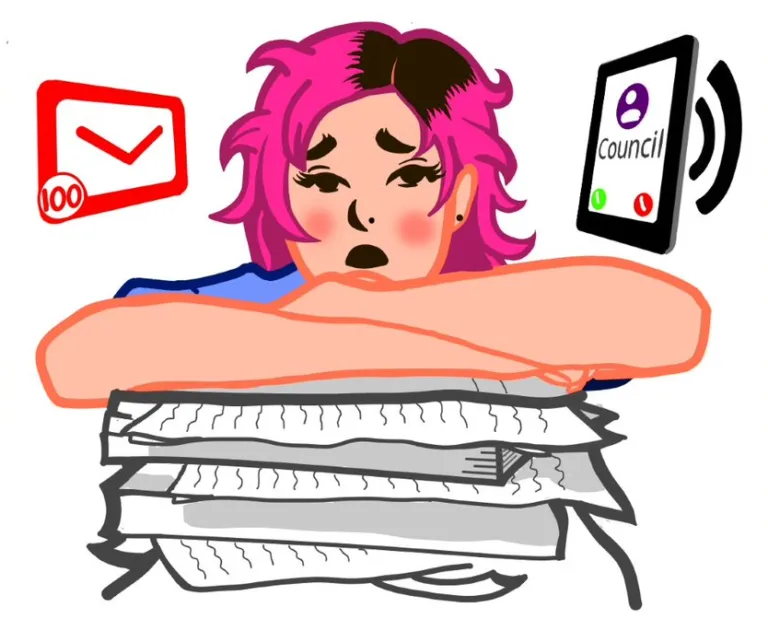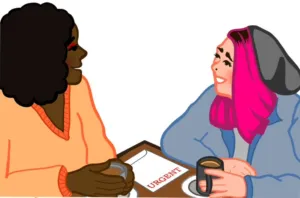Women are being failed by services when facing England’s broken housing system
Published: by Guest blog

A blog co-written by peer research volunteer Alex and Martha Schofield from Shelter’s Research team following the release of our latest research report ‘Fobbed Off: The barriers preventing women accessing housing and homelessness support, and the women-centred approach needed to overcome them’.
Historically homelessness services have been designed by default for, and dominated by, men, without considering how the needs of women differ. However, women are disproportionately affected by the housing emergency and in almost every one of Shelter’s hubs across the country, women make up the majority of our clients.
To address this important issue, we had to learn more about women’s experiences of accessing housing and homelessness support. Our new peer-led research exposes their experiences and the barriers women and non-binary people face.
Peer research volunteer Alex’s housing experiences and why getting involved in the research was so important to her
As a feminist and woman with lived experience of homelessness, I was excited when I saw that Shelter was seeking peer researchers for a project focused on women and non-binary people who have faced housing insecurity and poor housing conditions.
People who are gendered by society as ‘women’ tend to be invisible in conversations about homelessness. It’s assumed that because most rough sleepers are men, homelessness is a ‘male’ problem, but the reality is more nuanced. Many women who experience homelessness spend time sofa-surfing with friends, for example. One reason for this can be fear of reaching out to services and/or being unsuccessful in getting support with housing.
Fear of being dismissed meant that I didn’t get in touch with services until a supportive (and understandably frustrated) friend who I was staying with helped me (or rather, made me!) do so. I navigated the phone calls with the help of that friend and a female advocate who kindly volunteered her services to prevent me from being ‘fobbed off’.
Homeless women have distinct needs because of their gendered life trajectories. For example, high rates of trauma from male violence mean that mixed-sex service provision can be retraumatising and act as a barrier to women seeking support.
I already knew these things about the gendered nature of homelessness before becoming a peer research volunteer with Shelter. But interviewing other women who’d been through what I had (encountering hostile gatekeepers, feeling like they weren’t taken seriously because of being female) deepened my knowledge and my sense that my personal experiences are part of a bigger problem.
Too many women are made to feel unsafe in their homes because they are women, for instance in cases of domestic violence. This isn’t a failure of individuals, but of how our society views women in relation to men. Not only had the women I spoke to in my interviews been failed by many people in their personal lives, but the social security net they fell upon was full of holes. It was the same social security net I encountered: one that is ultimately hostile to anyone who finds themselves without a home, but perhaps uniquely so towards women and non-binary people.
Findings from the research: women’s experiences of homelessness and unfit housing
Our peer researchers interviewed 35 people, the majority of whom had experienced homelessness. Most interviewees had been treated poorly by their landlord or accommodation provider, and disrepair and overcrowding were also commonly experienced.

_All graphics used in the report were designed by peer researcher Megan Brigg_s
A third of the participants reported domestic abuse as being an issue related to their housing problems. Housing issues can deter women from leaving abusive situations, whether that be the risk of being forced into unsafe or precarious housing situations, being hit by the benefit cap or risk ending up on the streets and exposed to further violence and abuse.
Barriers preventing women getting support
Poor treatment by professionals working in a range of services (e.g. local authorities, accommodation providers, health workers, the police and charities) was the most common barrier to getting help. Interviewees reported being spoken to rudely, made to feel like a burden, shown a lack of empathy or, at worst, re-victimised. Many interviewees told us response times were way too slow, and this worsened during the pandemic when many services were interrupted.
A lack of support with mental health acted as a barrier to getting help for half of the participants. Poor mental health left people feeling they couldn’t cope or advocate for themselves, and that the impact of trauma wasn’t recognised. Most participants said they didn’t know where to turn for support with their housing or how to navigate the often-complex maze of services. For some a lack of support tailored to meet their additional needs was an issue, including physical health issues, learning disabilities and autism.
Other issues included language barriers, difficulty completing forms required by services, and lack of internet access to keep on top of communications with services.

Our research calls for a women-centred approach to service design and delivery
Our recommended approach to women-centred services is underpinned by the need for effective mental health support and trauma-informed support, as well as the three priority areas outlined below:
- Offering opportunities that bring women together – e.g. peer support activities, involvement activities, and employment, training and volunteering opportunities
- Better collaboration and stronger partnership working between services women go to for help
- Practical support accompanied by emotional support from ‘professionals’ that help with practical tasks but also offer caring, non-judgemental support
More detail on these priorities and Shelter’s co-designed service model can be found in the full report.
Final reflections from Alex
For now, I’m in a comfortable housing situation, which I’d mostly attribute to luck. But I know that many other women are struggling. COVID-19 had a negative effect on over three quarters of our interviewees and has left many people feeling more isolated and vulnerable, and services are overwhelmed.
I don’t want other women to go through the pointless indignities I experienced, and I hope that the research I helped produce (alongside various other wonderful women with lived experience of homelessness and bad housing) will help prevent that in the future.